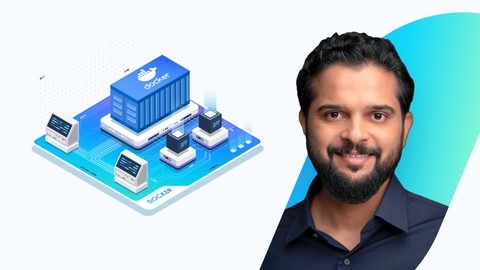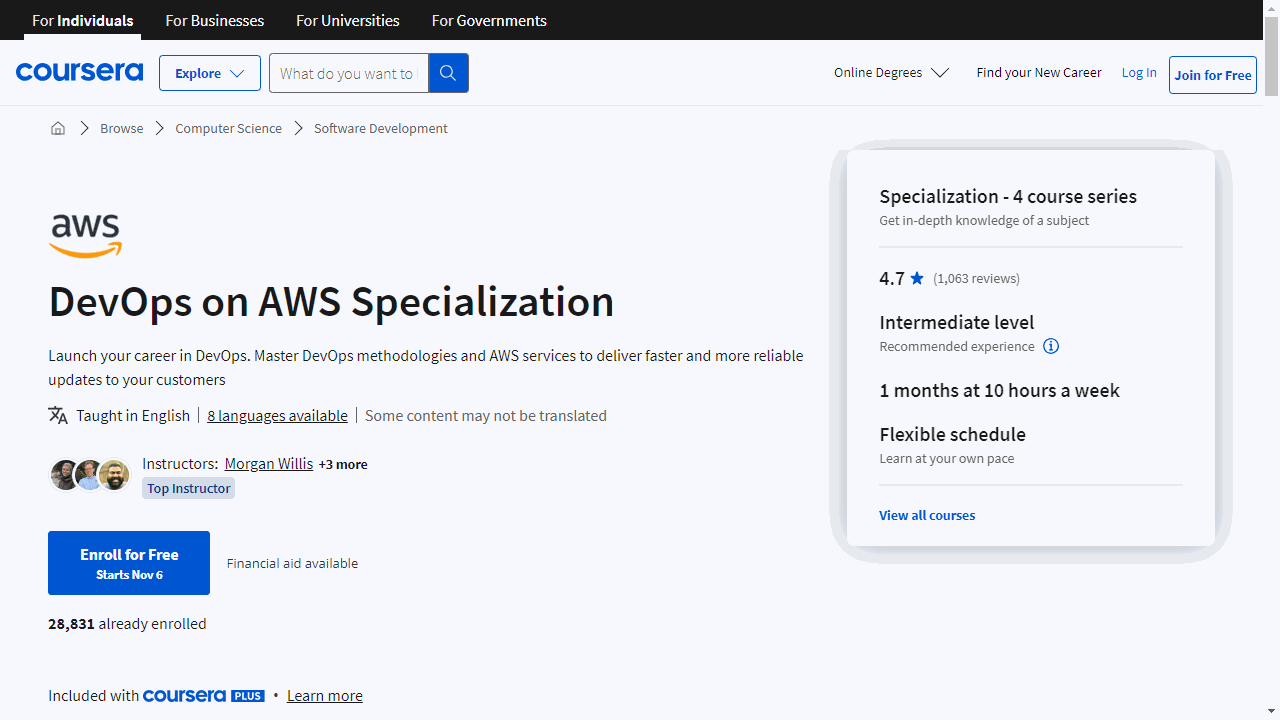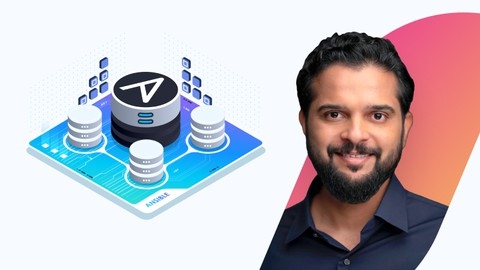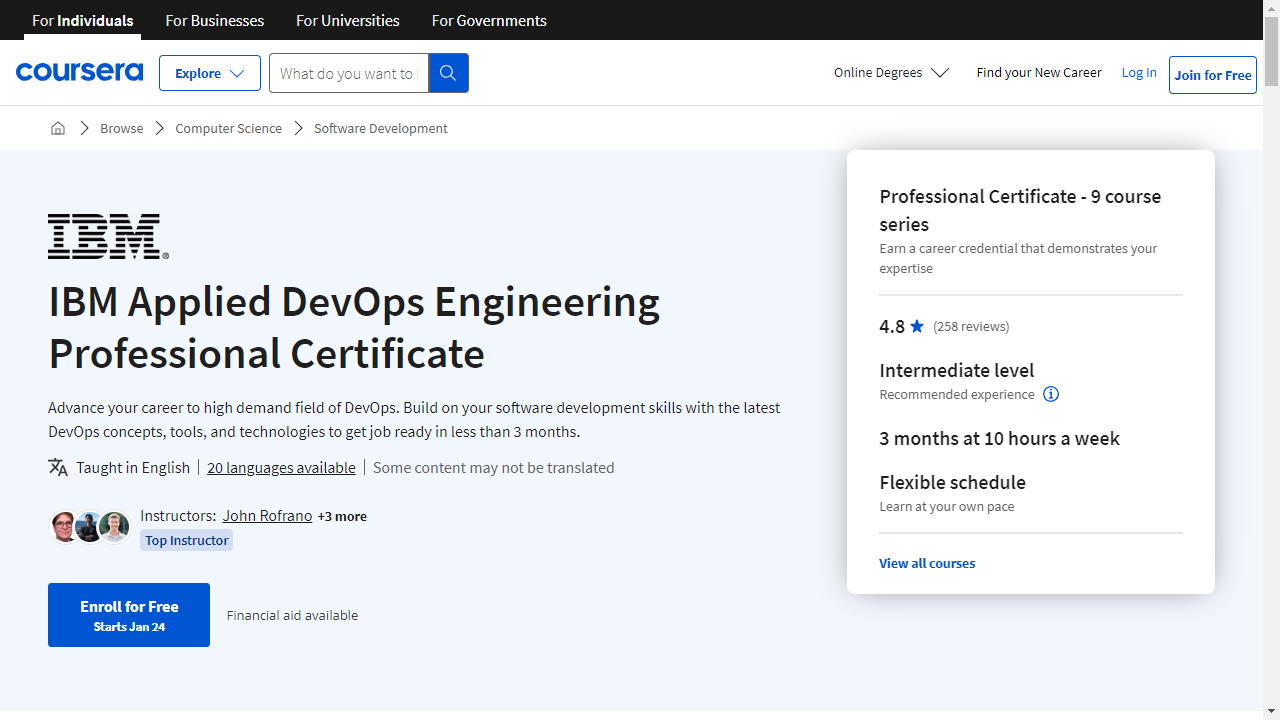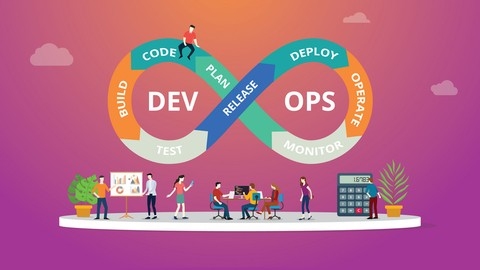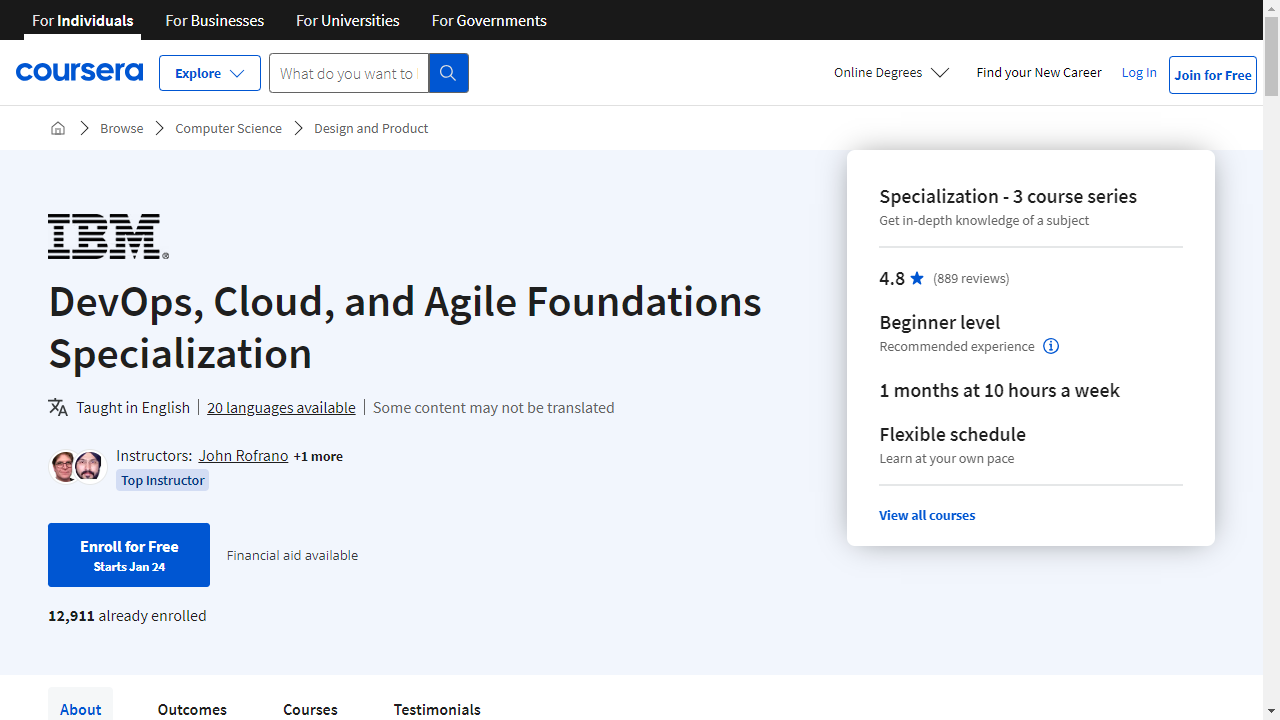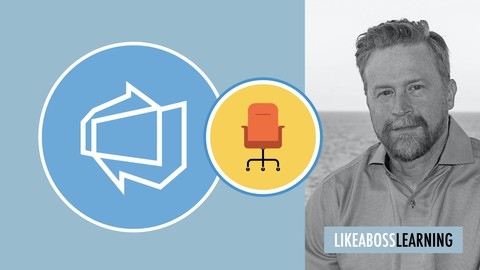DevOps is a set of practices that combines software development (Dev) and IT operations (Ops) to shorten the systems development life cycle and provide continuous delivery with high software quality.
DevOps practices aim to automate and streamline the process of building, testing, and deploying software, fostering closer collaboration between development and operations teams.
By learning DevOps, you can gain valuable skills that are in high demand in the tech industry, enabling you to build and deploy software faster and more reliably.
Finding the right DevOps course can be overwhelming with the multitude of options available online.
You want a comprehensive course that covers the essential concepts and tools while providing practical, hands-on experience.
Based on our research, we believe Docker for the Absolute Beginner - Hands On - DevOps is the best course overall.
This Udemy course provides a solid foundation in Docker, a crucial tool in the DevOps world.
You’ll learn how to build, deploy, and manage containerized applications, gaining practical skills that are highly valued in the industry.
However, if you’re interested in exploring other aspects of DevOps or are looking for courses tailored to specific platforms, keep reading!
We have reviewed various DevOps courses across different platforms to help you find the perfect fit for your learning journey.
Docker for the Absolute Beginner - Hands On - DevOps
Provider: Udemy
This Udemy course on Docker is perfect if you’re just starting with DevOps.
You’ll quickly learn the basics, setting up Docker on your computer and mastering commands.
You’ll become comfortable running containers, using Docker images, and even creating your own custom images using Dockerfiles, essential skills for building and managing applications.
You’ll even discover how to use environment variables, a key part of configuring your applications.
Next, you’ll dive into Docker Compose, learning how to define and manage multi-container applications using YAML.
Think of it like a recipe for your application, making it easy to launch and connect different parts.
You’ll also discover Docker Registry, a place to store and share your Docker images, making collaboration easier.
You’ll then explore Docker Engine, storage, and networking, which are crucial for understanding how Docker manages resources.
You’ll see how Docker works on both Windows and Mac operating systems.
Finally, you’ll be introduced to container orchestration with Docker Swarm and Kubernetes, tools for managing complex applications across many computers.
DevOps on AWS Specialization
Provider: Coursera
You want to become a DevOps master on AWS?
The “DevOps on AWS Specialization” on Coursera is your gateway!
This four-course journey starts you off with the basics and guides you to advanced techniques.
The first course, “AWS Cloud Technical Essentials,” is like your bootcamp, even if you’re completely new to AWS.
You’ll learn about core AWS services like Amazon EC2 for compute, Amazon S3 for storage, and Amazon DynamoDB for databases.
You’ll also wrap your head around important concepts like IAM for managing access to your resources and get familiar with the AWS Management Console.
Once you’ve got the basics down, you’ll dive into the heart of DevOps with “DevOps on AWS: Code, Build, and Test.”
You’ll explore the entire DevOps lifecycle, from planning and coding to building, testing, and deploying.
You’ll discover how to use continuous integration and continuous delivery to automate your workflow and ensure your code is always top-notch.
“DevOps on AWS: Release and Deploy” takes you deeper into the world of automation.
You’ll master the art of infrastructure as code using AWS CloudFormation, allowing you to define and manage your infrastructure with code.
You’ll also learn how to automate your deployments with AWS CodeDeploy, making your releases smoother and faster.
Finally, “DevOps on AWS: Operate and Monitor” equips you with the tools to keep your applications running like a well-oiled machine.
You’ll learn how to monitor your infrastructure and applications using Amazon CloudWatch, giving you complete visibility into your systems.
You’ll also dive into Amazon EventBridge for event management and AWS Config for ensuring your resources are always compliant.
Ansible for the Absolute Beginner - Hands-On - DevOps
Provider: Udemy
This Ansible course takes you from the ground up, even if you’re an absolute beginner.
You begin by learning the basics of Ansible, including how to use YAML to write the playbook files that automate your infrastructure.
You then dive into Ansible Inventory, learning how to organize and manage your servers.
You’ll discover how to group your machines and define variables, so you can apply specific configurations to different environments.
You will gain a solid understanding of Ansible variables, learning how to use them to make your playbooks more flexible.
You’ll see different variable types, understand how they are prioritized, and learn to use them effectively.
You’ll even learn how to store the results of your tasks as variables, which you can use for future actions.
The heart of Ansible is playbooks, and you’ll learn how to build them step-by-step.
You’ll define tasks, apply conditions, and use loops to achieve more complex automation goals.
You’ll master Ansible modules, the individual commands of your playbooks.
You’ll learn how to use them to automate tasks like managing users and files, and you’ll know how to navigate the Ansible documentation to find the modules you need.
You will explore advanced concepts like handlers, roles, and collections, which will allow you to organize your playbooks and build more complex automation solutions.
You will even learn how to create dynamic configuration files using Jinja2 templates.
Using VirtualBox, you’ll perform hands-on exercises to put your newfound skills to the test.
IBM Applied DevOps Engineering Professional Certificate
Provider: Coursera
This IBM Applied DevOps Engineering Professional Certificate on Coursera is a step-by-step journey into the world of DevOps.
You start with the basics, learning what DevOps is all about.
You discover how it can help you build software better and faster.
You learn about important ideas like automating tasks and working together in teams.
The course then dives into the world of Agile and Scrum, which are like special frameworks that help teams work better together.
You learn how to plan your work, track your progress, and deliver value to customers quickly.
You discover how to use tools like Kanban boards and practice essential skills such as writing user stories.
Next, you’ll explore containers – these are like special packages that help you move applications easily.
You learn how to use tools like Docker, Kubernetes, and OpenShift to build and run applications in the cloud.
You also explore microservices and serverless technologies, which are modern ways to build applications.
Then, you dive into testing, which is super important for making sure your applications work correctly.
You learn about Test Driven Development (TDD) and Behavior Driven Development (BDD), and you even get to practice writing tests yourself.
You use tools like Nose to see if your code passes all the tests.
Finally, you learn about Continuous Integration and Continuous Delivery (CI/CD), which is like a magic system for automating the software development process.
You explore tools like Jenkins and GitHub Actions to build pipelines that automatically test and deploy your code.
You also learn about security, which is crucial for keeping your applications safe from hackers.
You discover how to find and fix vulnerabilities and write secure code.
DevOps , CI/CD Continuous Integration/Delivery for Beginners
Provider: Udemy
This DevOps and CI/CD course starts by explaining how software development used to be, highlighting the problems and slowness of this old way.
You’ll discover how things were done in the past and the struggles they faced, which helps you appreciate the need for modern solutions.
You’ll then dive into Continuous Integration (CI), a process that automatically builds and tests code changes whenever a developer makes an update.
You’ll uncover how CI solves the headaches of the traditional approach with its automated testing, rapid feedback, and improved code quality.
You’ll also explore Continuous Delivery (CD), which takes automation a step further by automatically delivering software to users.
You’ll grasp how CD makes releases faster, smoother, and less prone to errors.
The course then introduces you to Continuous Deployment, the ultimate goal of CI/CD, where code changes automatically go live after passing all tests.
Finally, you’ll learn about DevOps, a set of practices that brings development and operations teams together.
You’ll see how DevOps, CI, and CD work together to create a smoother, faster, and more reliable software development process.
DevOps, Cloud, and Agile Foundations Specialization
Provider: Coursera
This specialization covers three key areas crucial for success in the tech world: DevOps, Cloud Computing, and Agile Development.
You’ll start by diving into DevOps culture.
You’ll learn how to build a strong foundation based on shared responsibility, transparency, and continuous learning from failures.
The course emphasizes the importance of cross-functional teams and teaches you how to use tools like CI/CD, Infrastructure as Code, and both Test-Driven and Behavior-Driven Development to build and deliver high-quality products.
Next, you’ll explore cloud computing essentials, covering the main service models like IaaS, PaaS, and SaaS, and deployment models like public, private, and hybrid.
You’ll become familiar with major cloud providers such as AWS, Google Cloud, and Microsoft Azure, and gain hands-on experience deploying an application to the cloud using a serverless architecture.
Plus, you’ll delve into current trends like hybrid and multi-cloud, microservices, and serverless computing.
Finally, you’ll master the principles of Agile development and the Scrum framework.
You’ll learn how to apply adaptive planning, iterative development, and continuous improvement in your work to deliver value to customers rapidly.
The course provides practical skills in writing user stories, tracking progress using a Kanban board, and conducting sprint reviews.
You’ll also gain hands-on experience working with tools like GitHub and ZenHub through realistic scenario-based labs.
Azure DevOps Fundamentals for Beginners
Provider: Udemy
This Azure DevOps Fundamentals course is perfect if you are new to DevOps and want hands-on experience.
You will begin by understanding what DevOps is and its significance in software development.
You will explore core Azure DevOps components like Azure Boards, Azure Repos, and Azure Pipelines.
The course guides you through setting up an Azure DevOps organization, creating your first project, and understanding how these components work together.
You will dive into Azure Boards, learning how to manage projects effectively.
You will discover how to define teams, create work items, plan sprints, and manage larger features using epics.
You will also explore the integration of Azure Boards with GitHub for seamless version control.
The course emphasizes practical application, allowing you to create a build pipeline and deploy a real-world application called Flatris using Azure Pipelines.
The course doesn’t neglect the testing phase of software development.
You will learn how to utilize Azure Test Plans to ensure the quality of your applications.
This includes creating manual test plans, executing automated URL load tests, and understanding different testing types.
You will learn how to use Azure Repos to manage your code, gaining experience with Git and GitHub for version control.
You will understand how to create repositories, commit changes, manage commit history, and even perform pull requests.
Also check our posts on:
